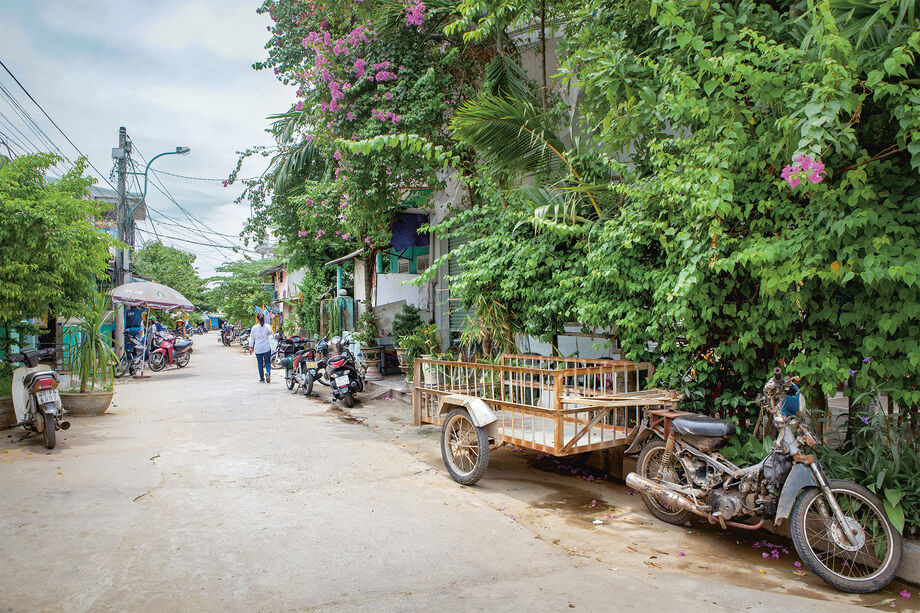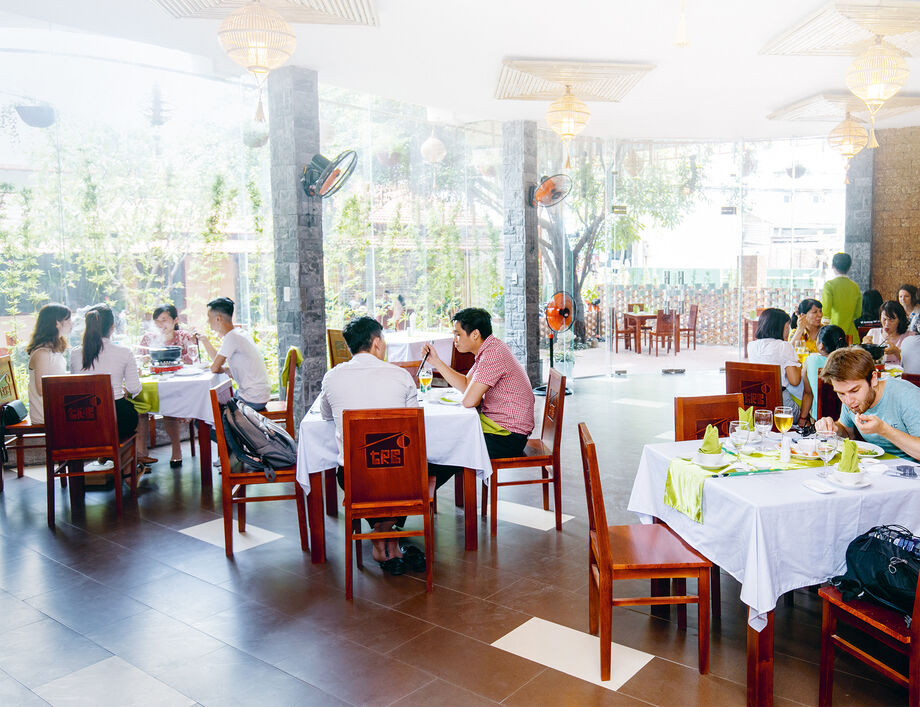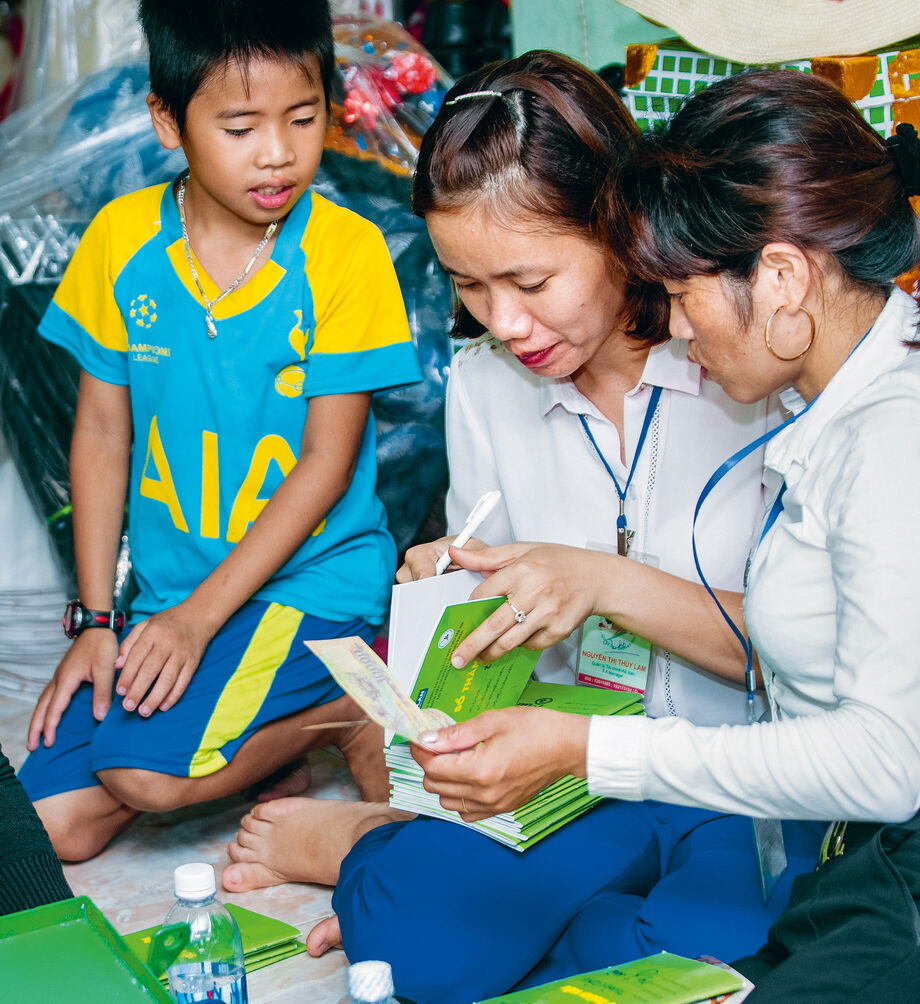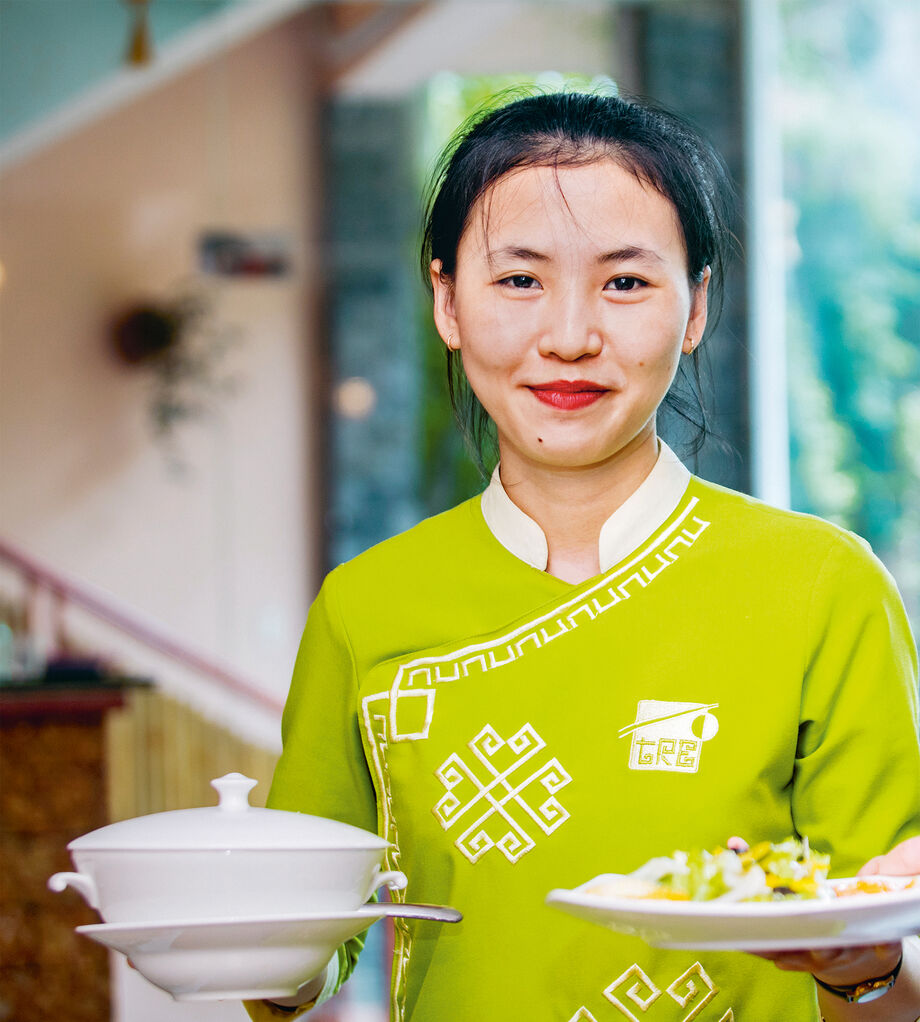It takes skill to serve the grilled marinated chicken fillets in a thin bamboo cane, especially as distributing the spices is at least as important as preparing the meat. Coriander, lemongrass and aniseed – it is all a matter of balance. Thien is satisfied with his effort. He shows it to the head chef, who gazes at it critically as usual before nodding. Thien passes the dish to his colleague Hoa. The young woman in the bright green smock smiles and carries it to the guests at the big round table by the fountain in the restaurant garden. Hoa knows what to expect next: a chorus of “aahs” and “oohs”, because guests at the restaurant TRE love the seductive sight and smell of this house speciality.
“Tre” is the Vietnamese word for bamboo, the country’s national plant. It sets the tone not only for this dish, but also for the ambience throughout the restaurant, which resembles a small oasis with its gardens, little ponds and fountain. It is not long since the restaurant opened, but already it ranks among the top addresses in this city in Central Vietnam. Evaluations for TRE are excellent, the guests agree: the food, the atmosphere, the service are almost perfect. And that is partly down to young employees like Hoa and Thien. Both of them are engaged in work experience at TRE as students at the TUI Academy Vietnam, a programme devised jointly by the TUI Care Foundation and Plan International for youngsters in Huê´.




 Austria
Austria




